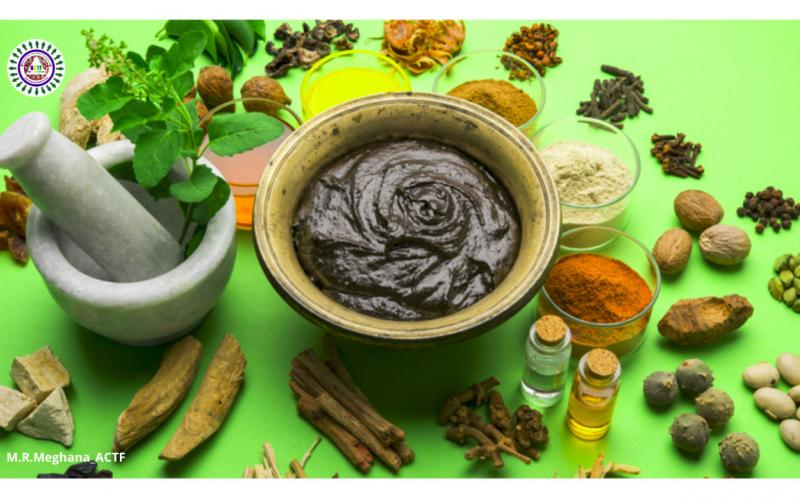
Medical Assistance
TAKE CARE OF RESPIRATORY HEALTH IN 2021 WITH THESE AYURVEDIC TIPS
Breath is synonymous with life. We often take our breath for granted until we are gasping for breath. It’s not only the air pollutants that hamper our respiratory health — even the food that we eat, the nutrients that we consume, the state of our gastrointestinal tract, sleep patterns, stress, and anxiety — all of these greatly impact the health of our respiratory system. With the ongoing pandemic, it has now become all the more important to safeguard and strengthen our respiratory health.
Here are a few tips from Ayurveda expert Dr Mitali Madhusmita, senior doctor at Art of Living’s Sri Sri Tattva Panchakarma, that will help you maintain and boost your respiratory health this new year.
Go green with natural air purifiers
Areca palm, money plant, peace lily, snake plant, aloe vera are some of the indoor plants that are excellent air purifiers; they eradicate harmful substances like benzene, toluene, formaldehyde, trichloroethane from the air inside your homes and offices, and most of them are known to give out oxygen even during the night. In addition, indoor plants are great stress-busters. Getting some of these natural beauties in your indoor spaces will definitely be a boon to your respiratory health.
Maintain a healthy body weight
Chronic Obstructive Pulmonary disease (COPD) has been found to have direct link with body weight and diet. The lungs of obese individuals have to work harder in order to perform their function which makes them more prone to respiratory issues. Changes of every few grams in your body weight have big effects on your overall health and hence, it is of utmost importance to pay attention to one’s body weight and take measures to attain a healthy body mass index.
Prevent yourself from pollutants and infectious germs
Avoid exposure to harmful particles like lead, asbestos, dust particles, pesticides and secondhand smoke. Using masks helps in minimising inhalation of harmful particles and disease-causing microbes.
Morning walk/jogging and exercise
Exercise helps increase lung efficiency and capacity. However, exercising or walking in fresh air has proven to be much more beneficial in improving respiratory health than working out in closed spaces. An early morning walk is one of the best ways to boost respiratory health since there is an abundance of nascent oxygen in the atmosphere during that time.
Diaphragmatic breathing
Breathing exercises not only improve lung capacity and volume but also purify the lungs and the respiratory tract which makes them another one of the most efficient ways to boost your respiratory health. Stress also plays a major role in respiratory health. Nadi shodhan pranayama (alternate nostril breathing) is one such effective breathing technique that purifies all the energy channels in the body and efficiently cleanses the respiratory tract in addition to improving mental clarity, calming the mind, and fighting stress and anxiety-related problems.
Vitamin D-rich foods and antioxidants
Studies show that vitamin D has a direct impact on respiratory health. A deficiency of vitamin D has been shown to increase upper respiratory tract infections and tuberculosis. Flaxseeds and fresh broccoli help in maintaining Vitamin D levels in the body. Apart from dairy products, you need to get yourself wholesome sunbathing every morning to absorb vitamin D into your body. Antioxidants including Vitamin D and E are helpful in reducing tissue inflammation in addition to fighting the free radicals.
Fresh seasonal fruits and nuts like almonds are loaded with antioxidants and gorging on these is sure to benefit your respiratory and overall health. Other food items that improve your lung health include carrots, avocado, ginger, beetroot and pumpkin.
The magic of golden milk
A pinch of turmeric mixed with hot milk is known to have countless health benefits. Turmeric is rich in curcumin which is useful in relieving sinus and congestion and improves lung function. In addition to being a rich source of antioxidants, turmeric has anti-inflammatory and anti-microbial properties which help in fighting a range of respiratory ailments and infections.
Include traditional herbs and spices
In the colder months, consider replacing your regular tea with a cup of herbal tea. Half a teaspoon to 1 teaspoon of chyawanprash(a traditional ayurvedic preparation consisting of various herbs) daily in the winter season will be helpful in improving immunity to fight against any respiratory infection and also in keeping cough and sinus at bay. A decoction made by boiling ginger, bayleaf and cinnamon can be consumed twice to thrice a week.
Tulsi leaves
The holy basil or Tulsi plant has numerous health benefits including its wide effects on respiratory health. Chewing 2-3 tulsi leaves daily can help you keep away from a number of respiratory ailments including infections, sinusitis, cough and cold. In addition to being a powerful immunomodulator, it is also helpful in treating asthma and bronchitis and has strong antiviral properties. Adding a pinch of black pepper in the Tulsi leaves will improve its efficiency in treating respiratory ailments.
Taking care of your nasal passages
(1.) Anu taila: It is an ancient ayurvedic formulation which is effective in cleansing the nasal passages in addition to lubricating them. “A drop or two of anu taila in each of the nostrils improves the respiratory health and immunity and helps relieve sinusitis, migraines and insomnia in addition to preventing the lungs from pollutants present in the air. For best results, a simple face massage with oil followed by steam inhalation can be done before using the anu taila,” explained Dr Madhusmita.
(2.) Steam inhalation: A kettle or vaporiser can be used for steam inhalation. In case of respiratory problems or infections, a little eucalyptus oil or carom seeds can be added to the water. A face massage followed by steam is particularly helpful during the winter season to fight sinus problems.
(3.) Neti: A neti pot can be used to clear the nasal passage of any blockages. It is important to learn it properly from an expert before practicing at home. For those who feel comfortable with Neti, it can be practiced daily; however, if you face any issues while doing neti, do not delay consulting your doctor.
(4.) Say no to tobacco: Smoking tobacco plays havoc with your lungs; not only does it compromise your respiratory health but also hampers your immune system, mental health, reproductive system and nearly all organs of the body and paves way for several ailments including COPD and different types of cancer. If you are addicted to smoking, heading to a de-addiction program should be the first thing on your 2021 resolution list.





